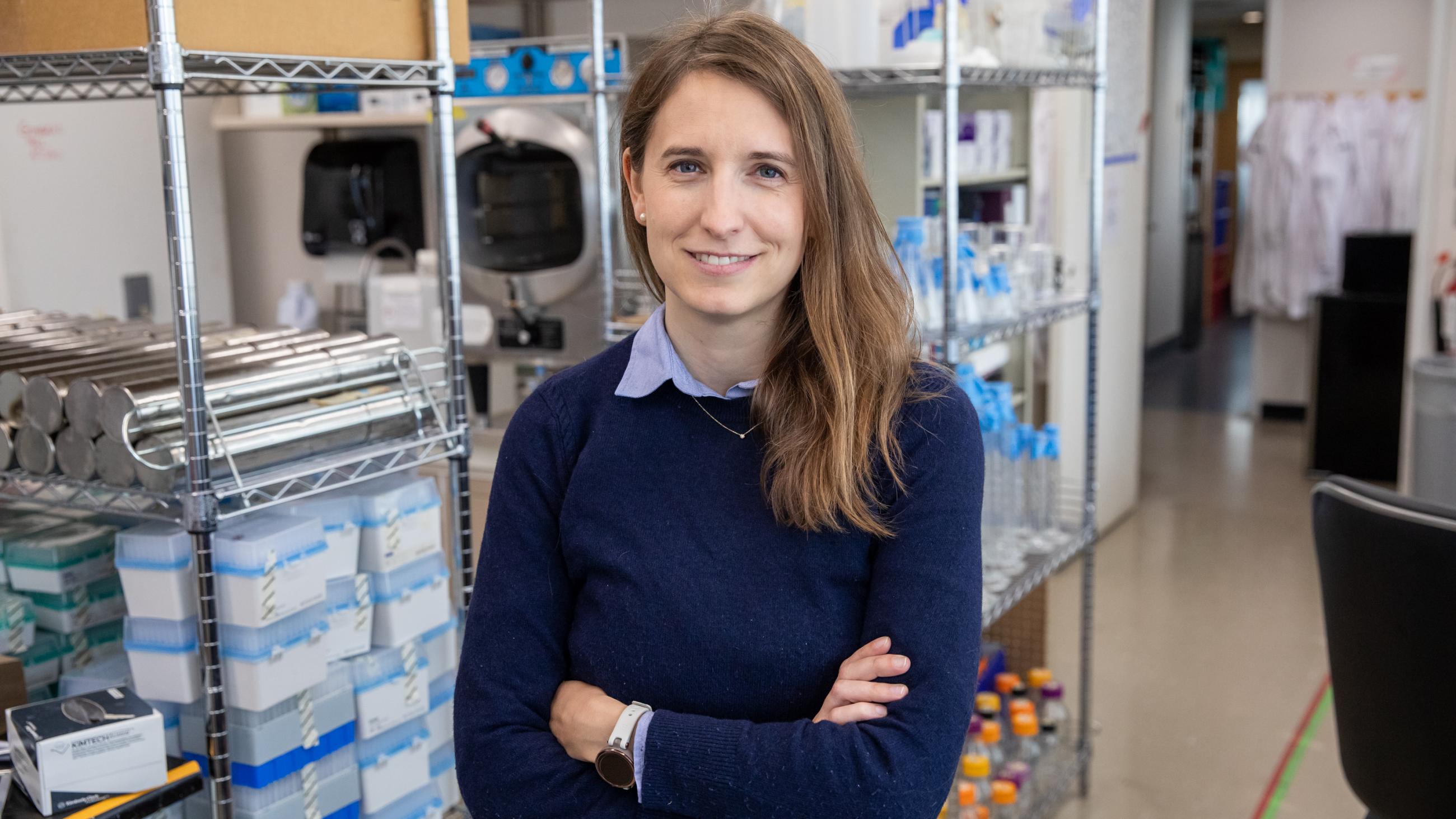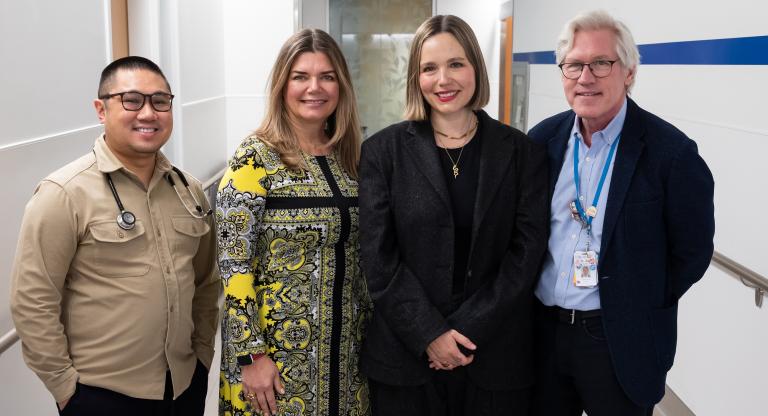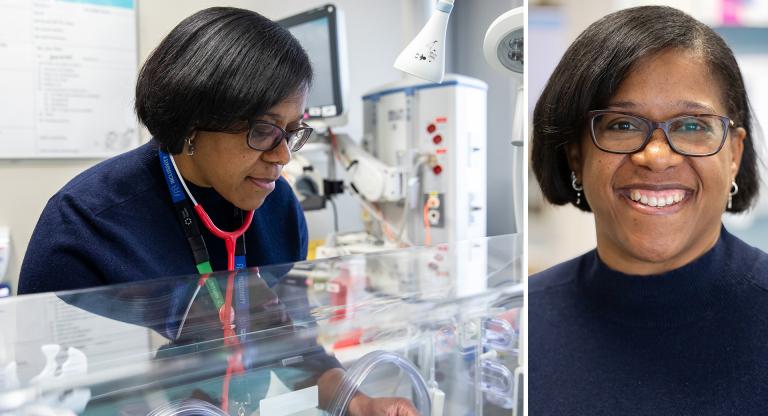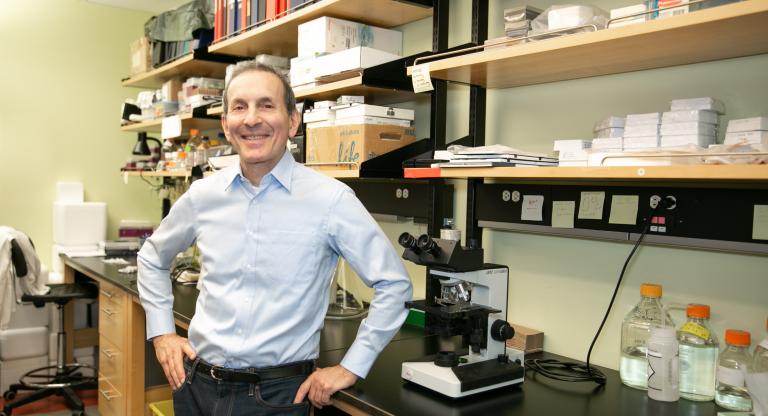Meet Dr. Diane Haakonsen, Sinai Health’s newest Investigator

Sinai Health’s Lunenfeld-Tanenbaum Research Institute (LTRI) has welcomed its newest Investigator, Dr. Diane Haakonsen, whose research focuses on cellular stress and its impact on disease.
Dr. Haakonsen joins a vibrant community of scientists at the LTRI who are making groundbreaking discoveries in human biology to advance medicine and health. Her research both expands upon and intersects with the existing areas of study, as the Institute continues to grow and attract emerging global leaders in biomedical research.
“I am thrilled that Dr. Haakonsen has decided to join us and establish her lab here at the LTRI,” says Dr. Anne-Claude Gingras, Director of LTRI and Vice President of Research for Sinai Health. “Her elegant work on cellular stress has opened new avenues for research and collaboration at the Institute and beyond. I am excited to see her research group grow and reveal new biological insights with clinical potential.”
Dr. Haakonsen obtained her bachelor’s and master’s degrees at the École Polytechnique Fédérale de Lausanne (EPFL) in Switzerland. For her master’s thesis, she conducted research Harvard Medical School, and then earned a doctorate at the Massachusetts Institute of Technology.
During her postdoctoral training in Dr. Michael Rapé’s laboratory at the University of California, Berkeley, she made a significant discovery that she will now build upon as an independent investigator. Contrary to the prevailing thought, she found that cells must expend energy to switch off stress responses.
Cells use stress response pathways to restore balance when experiencing fluctuating environments or stressors like toxins and pathogens. While short-term activation of these pathways is necessary, extended activation can harm tissue health. Although critical for health, how cells resolve stress responses has remained unclear.
“People used to think that once the stress was over, the response would just stop by itself, but we showed that’s not true,” says Dr. Haakonsen, who is also an Assistant Professor in the Department of Molecular Genetics at the University of Toronto.
Prolonged activation of stress responses can lead to cell death, a phenomenon that could contribute to some neurodegenerative diseases such as Leigh Syndrome, she said.
Like so often in science, Dr. Haakonsen made the discovery by chance. Initially, she set out to study protein degradation, a vital process for maintaining proper protein levels within cells. During her research, she found that a key component in this degradation process also plays a role in switching off stress signalling triggered by issues with mitochondria, the energy producers for cells.
“That’s the beauty of science – you never know where it’s going to take you,” Dr. Haakonsen reflects. “We were studying how a particular enzyme affects protein degradation, but we found that it also played a crucial role in managing mitochondrial stress.”
Having opened a new field of inquiry, Dr. Haakonsen will grow her research program at the LTRI by investigating how stress responses are regulated in cells, particularly in diseases driven by mitochondrial stress. Due to their high energy demands, the brain and nervous system are especially susceptible to mitochondrial stress.
In another discovery, Dr. Haakonsen found that silencing the mitochondrial stress response in cells with mitochondrial defects restored their health, suggesting that prolonged stress response is more harmful than the stress itself. This finding opens the door for developing treatments that regulate the duration of the stress response, potentially benefiting diseases beyond the nervous system, including cancer.
“Cancer cells are constantly under stress, and manipulating their stress response in combination with existing therapies could have a profound impact on treatment outcomes,” Dr. Haakonsen said.
Dr. Haakonsen’s passion for health sciences began at a young age. Growing up with parents who were family doctors, she was naturally curious about why people get sick. Her interest crystallized during the HIV epidemic of the 1990s, as she became fascinated with viruses, vaccines, and how biology and chemistry intersect to develop treatments. She quickly realized, however, that becoming a doctor wasn’t the right path for her. Instead, she was more interested in making discoveries that could help prevent diseases from developing.
As she embarks on this new chapter at the LTRI, Dr. Haakonsen says she looks forward to engaging with her new colleagues and mentoring the next generation of researchers.
“There are so many amazing scientists here, but what stood out to me was how approachable and humble everyone was. It’s a stimulating environment where people at all stages of their careers are genuinely excited to talk about science and collaborate.” And she adds, “I can’t wait to start building a thriving team and mentoring the enthusiastic trainees.”












